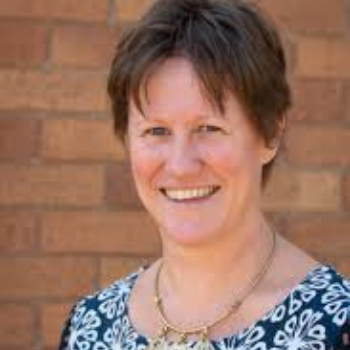AEN MEMBER ORGANISATION WINS AWARD AFTER KEY INTRODUCTION
One of the strengths of the Africa Evidence Network (AEN) is that those within the membership, and in particular within the secretariat, are always keen to promote and recommend one another when opportunities arise.
During the early stages of the COVID-19 pandemic in early October 2020, the AEN chairperson – Professor Ruth Stewart – was approached by a funder with whom she was engaging on a different topic, and asked if she knew anyone working in West Africa with experience in and capacity for work tackling misinformation at the time of the pandemic. The request was urgent and time-sensitive: the funder needed an answer within 24 hours. Within this timeframe, Professor Stewart describes how she worked hard to “identify some potential names, approach them, and get their permission to have their details shared”. Before the deadline was up, she put forward four names to the funder. She was pleased to find out a month or so later that one of the names she’d put forward for the grant had been successful in winning the funding, and thought nothing more of the request.
Fast forward to the second year of the pandemic when almost a year after the initial conversation in early July 2021, Professor Stewart received the news that the organisation that secured the grant had also won an international award for their work. Professor Stewart beams as she describes her joy at the thought that indirectly through the initial introduction and recommendation, the AEN helped its member to win the grant which resulted in the award. “This is what makes me proud to be part of this community,” she comments. “We actively support each other in advancing evidence-use in Africa. This is just one example of how the AEN has supported its members’ organisations to get access to funding opportunities.”
When asked how such an opportunity is possible, Professor Stewart answers “This wonderful news came about because of a commitment from the AEN to have open correspondence with members and with funders. It also built on the way in which the AEN has gained a reputation of trust with funders. The funder was therefore open to recommendations from the AEN.” This trust and open channels of communication meant that Professor Stewart could very quickly tap into her wide-ranging connections within the Network to help suggest the best people to invite to bid for the work.
Lastly, the excellence of work within Africa shone through in the way the member’s organisation then won an award for the work. This reflects the AEN’s commitment to celebrating the excellent work taking place in the African evidence ecosystem. The relationships and open sharing of opportunities within the AEN demonstrate how this Network supports its members by being open and generous in introducing each other to potential opportunities. Speaking about the news, Professor Stewart concludes “For me, this story of change shows the benefit of relationships and of getting to know one another and one another’s work within the African evidence ecosystem. When we meet and engage one another, we don’t always know there will be any benefit, but over time it can lead to sharing of opportunities, chances to apply for funds, and even international awards”.
